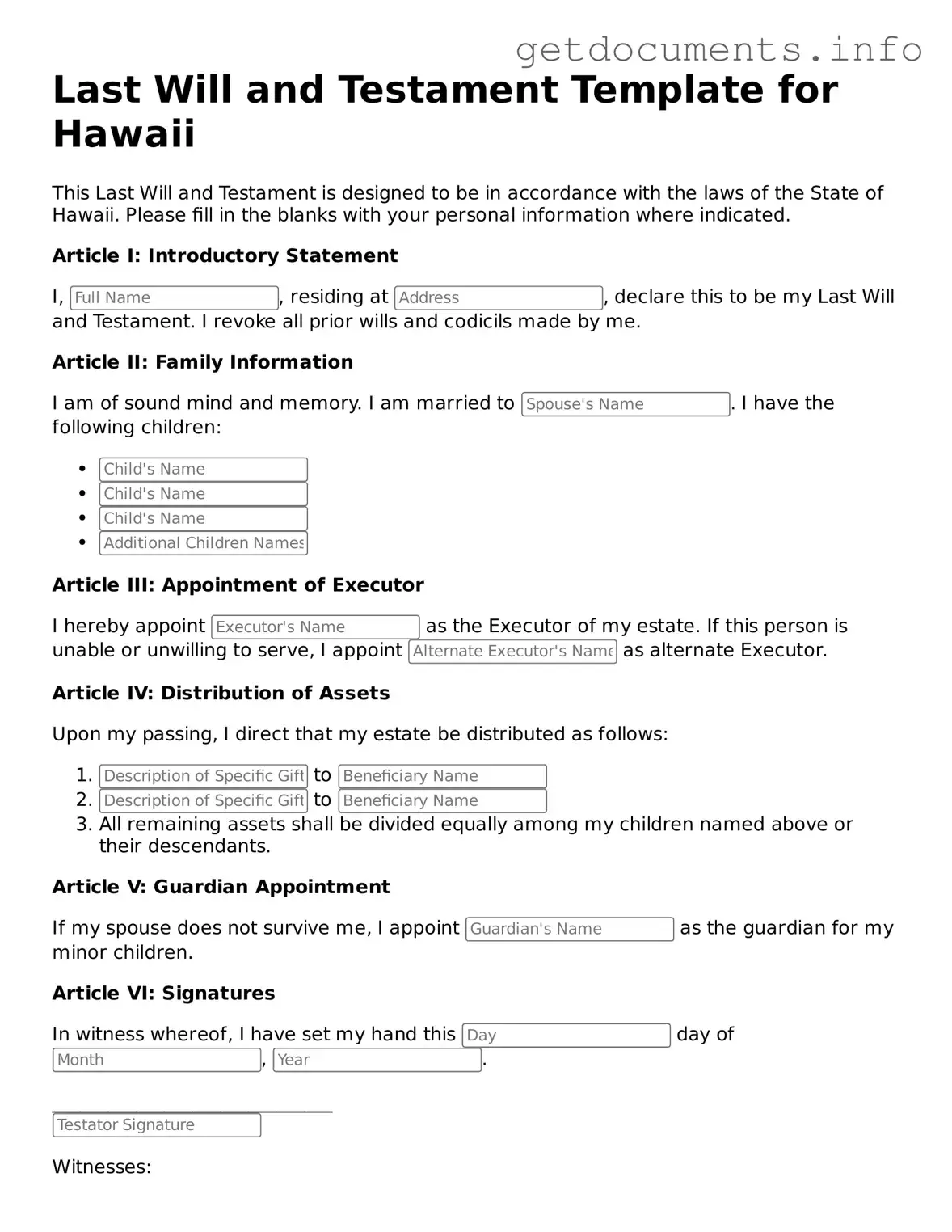Free Last Will and Testament Template for Hawaii
A Last Will and Testament in Hawaii is a legal document that outlines how a person's assets and responsibilities should be handled after their death. This form allows individuals to specify their wishes regarding the distribution of property, guardianship of dependents, and other important matters. To ensure your wishes are honored, consider filling out the form by clicking the button below.
Access Last Will and Testament Editor

Free Last Will and Testament Template for Hawaii
Access Last Will and Testament Editor
Got places to be? Complete the form fast
Fill out Last Will and Testament online and avoid printing or scanning.
Access Last Will and Testament Editor
or
⇩ PDF File
